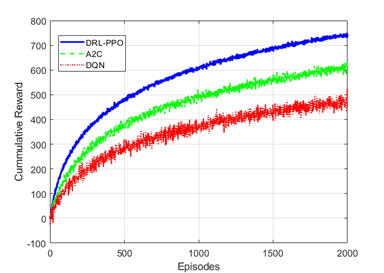COST EFFECTIVE ROUTE OPTIMIZATION FOR DAIRY PRODUCT DELIVERY
DOI:
https://doi.org/10.71146/kjmr254Keywords:
Route optimization, Dairy product delivery, Deep learning, Reinforcement learningAbstract
Milk is an essential component of human nutrition, particularly for the growth and cognitive development of children in undernourished populations. In Pakistan, milk production has more than doubled, with the country now the third-largest milk producer in the world. Most milk in Pakistan, however, is consumed in the form of unpackaged loose milk not only making hygiene an issue but logistical as well. An optimized route planner caters to the cost-effective and environmentally friendly delivery of dairy products. Vehicle routing has only played a minor role in large-scale, dimension-driven, and technology-defined approaches in developing traditional solutions. To address these limitations, sophisticated optimization methods like metaheuristics, machine learning, and deep reinforcement learning (DRL), are studied. In this paper, we proposed a DRL-based delivery model that optimizes routes of dairy products in both capacity and time windows constraint using Proximal Policy Optimization (PPO). By integrating vehicle, customer, and global states, the framework makes informed decisions while satisfying constraints including vehicle capacity and delivery deadlines. We analyze performance measurements such as total route length, inter-customer gaps, time constraints, and capacity utilization to assess efficiency. Experimental results demonstrate that the DRL-PPO model significantly outperforms traditional benchmarks such as Deep Q-Network (DQN) and Advantage Actor-Critic (A2C). Specifically, DRL-PPO yielded advantages in several key areas: it achieved reduced route lengths, shorter delivery times, minimized inter-customer gaps, increased vehicle capacity utilization, and higher success rates across varying levels of task complexity. These findings indicate the potential of Deep Reinforcement Learning (DRL)-based optimization methods to effectively address logistical inefficiencies prevalent in Pakistan's dairy industry. The implications of adopting DRL-PPO are substantial, offering cost-effective solutions that can enhance profitability while concurrently reducing operational expenses. By leveraging advanced machine learning techniques, businesses can pave the way toward sustainable logistics systems for perishable goods. This not only boosts overall supply chain efficiency but also ensures better access to high-quality dairy products for consumers. As such, the use of DRL-PPO represents a strategic opportunity to transform logistics practices within the dairy sector, leading to improved outcomes for both producers and consumers alike.
Downloads

Downloads
Published
Issue
Section
License
Copyright (c) 2025 Nasir Khan, Shahbaz Ahmad, Salman Raza, Dr. Ahmad Khan, Muhammad Younas (Author)

This work is licensed under a Creative Commons Attribution 4.0 International License.






